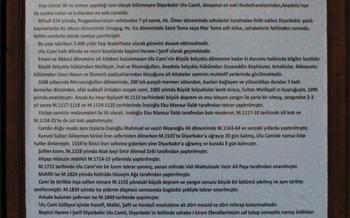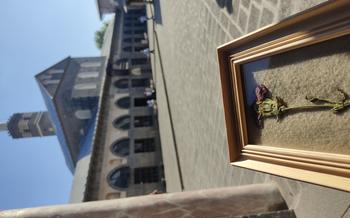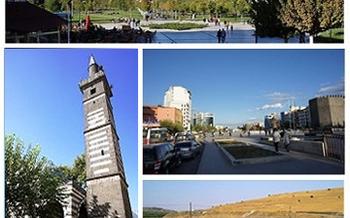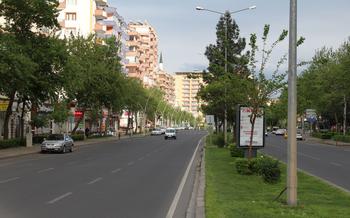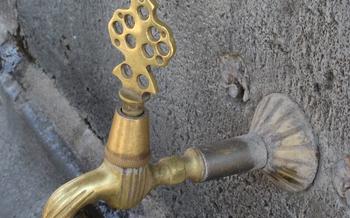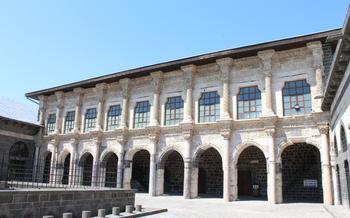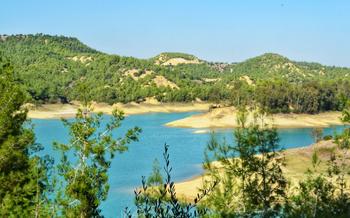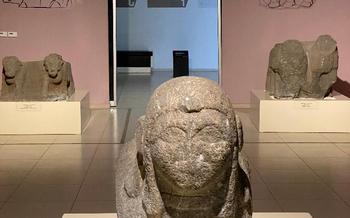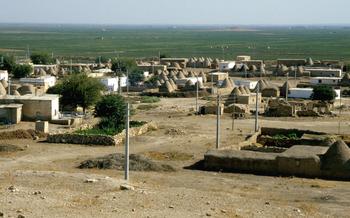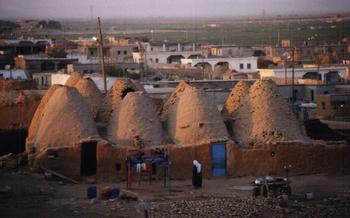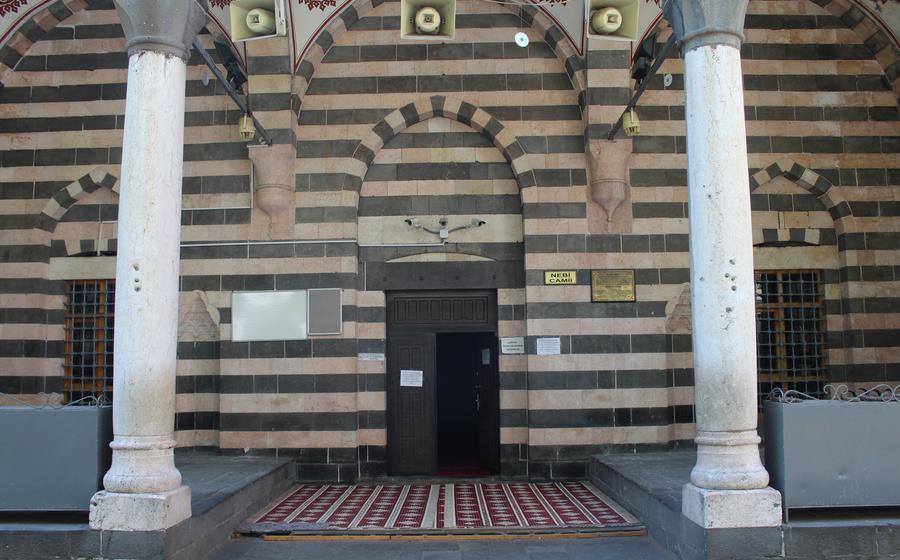
Diyarbakır Soap Museum
- Soap Making in Diyarbakır: A Legacy of Craftsmanship
- The Diyarbakır Soap Museum: A Journey Through Soap-Making Heritage
- Location and Accessibility
- Exhibits and Displays
- Cultural Significance
- Traditional Soap-Making Process
- Unique Features of Diyarbakır Soap
- Economic Importance of Soap Making
- Soap-Making Workshops
- Shopping for Soap and Souvenirs
- Cultural Significance of Soap
- Historical Soap-Making Sites
- Soap Festivals and Events
- Soap as a Natural Remedy
- Soap in the Local Cuisine
- Soap as a Cultural Symbol
Soap Making in Diyarbakır: A Legacy of Craftsmanship
Diyarbakır, a vibrant city in southeastern Turkey, has a rich tradition of soap making that dates back centuries. Soap making in Diyarbakır is not just a trade but an art form, passed down from generation to generation. The city's soap is renowned for its unique qualities, attributed to the local climate, water, and the skillful hands of local artisans.
The unique qualities of Diyarbakır soap lie in its natural ingredients and traditional production methods. The soap is made using pure olive oil, lye, and water, without any artificial additives or harsh chemicals. This results in a soap that is mild, gentle, and suitable for all skin types, including sensitive skin. The soap is also known for its antibacterial and antifungal properties, making it an effective natural remedy for skin conditions such as eczema and psoriasis.
Soap making in Diyarbakır has played a significant role in the local economy and culture. The soap industry provides a source of income for local artisans and contributes to the city's tourism sector. Soap making is also an integral part of local traditions and rituals, symbolizing hospitality, generosity, and purity.
The Diyarbakır Soap Museum: A Journey Through Soap-Making Heritage
Location and Accessibility
Nestled in the heart of Diyarbakır's historic district, the Diyarbakır Soap Museum invites visitors on an immersive journey through the city's rich soap-making heritage. Situated within easy reach of the city's main attractions, the museum is a must-visit for anyone interested in the history, culture, and craftsmanship of this unique product.
Exhibits and Displays
The museum showcases an array of exhibits that narrate the captivating story of soap making in Diyarbakır. From ancient soap-making tools and techniques to modern-day production processes, the museum offers a comprehensive insight into the evolution of this traditional craft. Interactive displays and educational programs bring the exhibits to life, providing visitors with a hands-on experience and a deeper understanding of the soap-making process.
Cultural Significance
More than just a repository of soap-making knowledge, the Diyarbakır Soap Museum serves as a testament to the city's cultural heritage. Here, visitors can delve into the significance of soap in local traditions, ceremonies, and rituals, gaining a glimpse into the profound cultural meaning attached to this everyday object. The museum also highlights the role of soap in promoting understanding and fostering connections between people from diverse backgrounds.
Traditional Soap-Making Process
The traditional soap-making process in Diyarbakır is a fascinating blend of art and science, passed down from generation to generation. It begins with the careful selection of raw materials, including high-quality olive oil, lye, and water. The oil is heated to a precise temperature, and the lye is dissolved in water, creating a caustic solution called lye water.
The lye water is then gradually added to the hot oil, while constantly stirring the mixture to ensure a smooth and homogenous blend. This process, known as saponification, triggers a chemical reaction that transforms the oil and lye into soap. The mixture thickens and becomes increasingly viscous as the saponification progresses.
Once the saponification is complete, the soap mixture is poured into molds and left to cool and harden. The soap is then cut into bars, stamped with the maker's mark, and left to cure for several weeks or even months. During this curing period, the soap undergoes a natural process of drying and hardening, developing its characteristic texture, fragrance, and mildness.
The use of natural ingredients and traditional techniques gives Diyarbakır soap its unique qualities, such as its gentle and moisturizing properties, delightful fragrance, and long-lasting lather.
Unique Features of Diyarbakır Soap
Diyarbakır soap stands out for its unique characteristics that set it apart from other soaps. The use of local olive oil, a staple of the region, gives the soap a rich and nourishing quality. The olive oil, known for its moisturizing properties, contributes to the soap's gentle and skin-friendly nature. The lye, extracted from natural sources, is carefully balanced to create a mild and non-abrasive soap.
The fragrance of Diyarbakır soap is another distinctive feature. The soap emits a delicate, natural scent that is both pleasant and unobtrusive. The fragrance is derived from the combination of olive oil and the natural ingredients used in the soap-making process. Unlike many commercial soaps that rely on artificial fragrances, Diyarbakır soap retains its natural aroma, providing a sensory experience that is both refreshing and authentic.
The color of Diyarbakır soap is typically a warm, golden hue. This color is a result of the natural ingredients used in the soap-making process, particularly the olive oil. The golden color adds to the soap's aesthetic appeal, making it a visually pleasing addition to any bathroom or vanity.
In addition to its visual and sensory qualities, Diyarbakır soap is renowned for its mild and gentle properties. The soap lathers well, producing a rich and creamy foam that cleanses the skin without stripping it of its natural oils. The mild nature of the soap makes it suitable for all skin types, including sensitive skin. It is particularly beneficial for individuals with skin conditions such as eczema or psoriasis, as it does not irritate or exacerbate these conditions.
Economic Importance of Soap Making
Diyarbakır's soap-making industry plays a vital role in the local economy, providing a source of income for numerous artisans and contributing to the city's tourism sector. The traditional skills and crafts associated with soap making are preserved and passed down from generation to generation, ensuring the continuity of this important cultural tradition.
Moreover, the soap-making industry promotes Diyarbakır's cultural heritage, attracting visitors from around the world who are interested in learning about the city's unique soap-making traditions. The sale of soap and other handmade souvenirs generates revenue for local artisans and helps to support the local economy.
The economic significance of soap making extends beyond the direct income it generates. It also contributes to the preservation of traditional skills and crafts, promotes cultural heritage, and fosters a sense of community pride in Diyarbakır. By supporting the soap-making industry, visitors and consumers can contribute to the preservation of this unique cultural tradition and support the local economy.
Soap-Making Workshops
The Diyarbakır Soap Museum offers visitors a unique opportunity to participate in hands-on soap-making workshops. Led by experienced artisans, these workshops provide an immersive experience into the traditional soap-making process. Participants learn about the raw materials used, the step-by-step process, and the role of natural ingredients in soap production.
During the workshops, participants have the chance to create their own soap using traditional techniques. They can choose from a variety of natural oils, fragrances, and colors to create a personalized soap bar. The workshops are designed to be educational and interactive, allowing participants to gain a deeper understanding of the art of soap making.
In addition to learning about the soap-making process, participants can also explore the cultural significance of soap in Diyarbakır. The workshops provide insights into the role of soap in local traditions, rituals, and ceremonies. Participants can also learn about the importance of soap as a symbol of hospitality and generosity in the region.
Soap-making workshops at the Diyarbakır Soap Museum are a great way to connect with local culture, learn a new skill, and create a unique souvenir to take home. Whether you are a seasoned soap maker or a complete beginner, these workshops offer an enriching and memorable experience for all.
Shopping for Soap and Souvenirs
The Diyarbakır Soap Museum offers a unique opportunity to purchase authentic Diyarbakır soap and other handmade souvenirs. The museum shop features a wide variety of soap products, including bars, liquids, and gift sets, all made using traditional methods and local ingredients. Visitors can choose from a range of fragrances and colors to find the perfect soap for their needs.
In addition to soap, the museum shop also offers a variety of other handmade souvenirs from the region, such as pottery, textiles, and jewelry. These items are crafted by local artisans using traditional techniques, making them a special and unique reminder of your visit to Diyarbakır.
When choosing soap, it is important to consider your skin type and any specific needs or preferences. For example, if you have sensitive skin, you may want to choose a soap that is mild and gentle, such as the traditional olive oil soap. If you are looking for a soap with antibacterial properties, you may want to choose a soap that contains lye.
The Diyarbakır Soap Museum is a great place to learn about the history and culture of soap making in Diyarbakır, and to purchase authentic soap and souvenirs to take home. Whether you are looking for a unique gift for a loved one or a special treat for yourself, you are sure to find something special at the museum shop.
Cultural Significance of Soap
In Diyarbakır, soap holds a profound cultural significance, deeply intertwined with the city's history, traditions, and beliefs. It serves as a symbol of hospitality and generosity, a token of respect and appreciation offered to guests and visitors. Soap plays a pivotal role in traditional ceremonies and rituals, symbolizing purity, cleanliness, and the beginning of new endeavors. It is believed to bring good luck and ward off evil spirits, making it an essential element in many auspicious occasions.
The cultural significance of soap in Diyarbakır is further reflected in its use as a symbol of compassion and care. It is often gifted to those in need, symbolizing the giver's desire to provide comfort, healing, and well-being. The exchange of soap is seen as an act of kindness, strengthening bonds and fostering a sense of community.
Through its rich cultural associations, soap has become an integral part of Diyarbakır's identity, representing the city's deep-rooted traditions, values, and beliefs. The Diyarbakır Soap Museum stands as a testament to this cultural heritage, showcasing the intricate relationship between soap and the city's people.
Historical Soap-Making Sites
Diyarbakır boasts a rich history of soap making, with ancient soap-making sites scattered throughout the city and its surroundings. These sites hold immense significance in understanding the evolution of soap making in the region. One such site is the ancient soap factory located in the heart of the city, believed to date back to the 16th century. Visitors can marvel at the well-preserved soap-making equipment, including large cauldrons, molds, and pressing machines.
Another notable site is the soap-making village of Bismil, situated just outside Diyarbakır. This village has been renowned for its soap-making traditions for centuries, with many families passing down their soap-making skills from generation to generation. Visitors can witness soap makers at work, using traditional methods to create their famous olive oil-based soaps.
Efforts are underway to preserve and restore these historical soap-making sites, recognizing their cultural and historical importance. The local government and cultural organizations collaborate to protect these sites, ensuring that future generations can appreciate the rich heritage of soap making in Diyarbakır. Visitors are encouraged to explore these ancient soap-making sites, gaining insights into the history and traditions that have shaped this unique craft.
Soap Festivals and Events
Diyarbakır's soap-making traditions are celebrated annually through vibrant soap festivals and events that showcase the city's rich cultural heritage. These events provide a platform for soap makers to exhibit their finest creations, compete in soap-making contests, and share their knowledge with visitors.
One of the highlights of these festivals is the soap-making competition, where artisans from across the region compete for the title of "Best Soap Maker." Judges evaluate the soaps based on their appearance, texture, fragrance, and lather, selecting the most exceptional soap as the winner.
Visitors to these festivals can also participate in interactive workshops, where they can learn the traditional soap-making process and create their own unique soaps. These workshops offer a hands-on experience, allowing visitors to immerse themselves in the art of soap making and take home a personalized souvenir of their visit to Diyarbakır.
Soap as a Natural Remedy
Diyarbakır soap has gained recognition for its remarkable healing properties, making it a natural alternative to harsh chemical soaps. Its gentle formulation and natural ingredients make it suitable for individuals with sensitive skin or skin conditions such as eczema and psoriasis. The soap's antibacterial and antifungal properties further contribute to its effectiveness in treating skin ailments.
Local artisans have passed down traditional recipes and techniques for centuries, ensuring the soap's purity and efficacy. Diyarbakır soap is free from artificial additives and chemicals, making it a gentle and natural choice for skincare.
In addition to its use in personal care, Diyarbakır soap has found applications in traditional medicine. Its natural ingredients possess healing properties that can soothe and relieve various skin conditions. The soap's mild and gentle nature makes it suitable for use on sensitive or irritated skin.
Whether you're looking to alleviate skin conditions or simply enjoy the benefits of natural skincare, Diyarbakır soap is a remarkable choice. Its healing properties, combined with its traditional craftsmanship, make it a valuable addition to any skincare routine.
Soap in the Local Cuisine
In Diyarbakır, soap plays a unique role not only in personal hygiene and cleanliness but also in the local cuisine. While the use of soap in cooking may seem unconventional, it holds a special place in the culinary traditions of the region.
One of the most intriguing uses of soap is as a tenderizing agent in certain recipes. Soap is known to break down proteins, which can help to tenderize meats and make them more flavorful. In Diyarbakır, soap is traditionally used in the preparation of dishes such as "kelle paça" (sheep's head and trotters soup) and "kaklık" (a type of offal stew). The soap helps to soften the meat and enhance its taste.
Soap also plays a role in preserving food and enhancing flavors. In the past, soap was used to preserve meats and other perishable goods in the absence of refrigeration. The antibacterial properties of soap helped to prevent spoilage and extend the shelf life of food. Even today, soap is sometimes used to preserve certain types of traditional foods, such as pickles and olives.
When using soap in cooking, it is essential to choose a mild and gentle soap that is made with natural ingredients. The soap should be used sparingly and only for specific dishes that call for it. Using too much soap or the wrong type of soap can ruin the flavor of the food.
If you are interested in experiencing the unique culinary traditions of Diyarbakır, be sure to try some of the local dishes that incorporate soap. It is a truly unique and unforgettable experience that will give you a taste of the region's rich cultural heritage.
Soap as a Cultural Symbol
Diyarbakır soap is not just a commodity; it is a cultural symbol that embodies the city's rich heritage and traditions. The soap-making process, passed down through generations, represents the craftsmanship and expertise of local artisans. The unique qualities of the soap, such as its natural ingredients and mild properties, reflect the city's commitment to quality and sustainability.
Soap holds a special place in the hearts of Diyarbakır people, symbolizing hospitality and generosity. It is often offered as a gift to guests, representing the city's warm welcome and appreciation for visitors. Soap is also an integral part of traditional ceremonies and rituals, signifying purity and cleanliness.
The cultural significance of soap extends beyond its practical uses. It is a symbol of Diyarbakır's cultural identity, representing the city's unique blend of history, tradition, and craftsmanship. The city's efforts to preserve and protect the cultural significance of soap, such as through the establishment of the Diyarbakır Soap Museum and the promotion of traditional soap-making techniques, demonstrate the importance of this cultural symbol to the city's identity.
Diyarbakır soap is more than just a product; it is a symbol of the city's cultural heritage, craftsmanship, and identity. It is a testament to the city's commitment to preserving its traditions and promoting its unique culture to the world.
